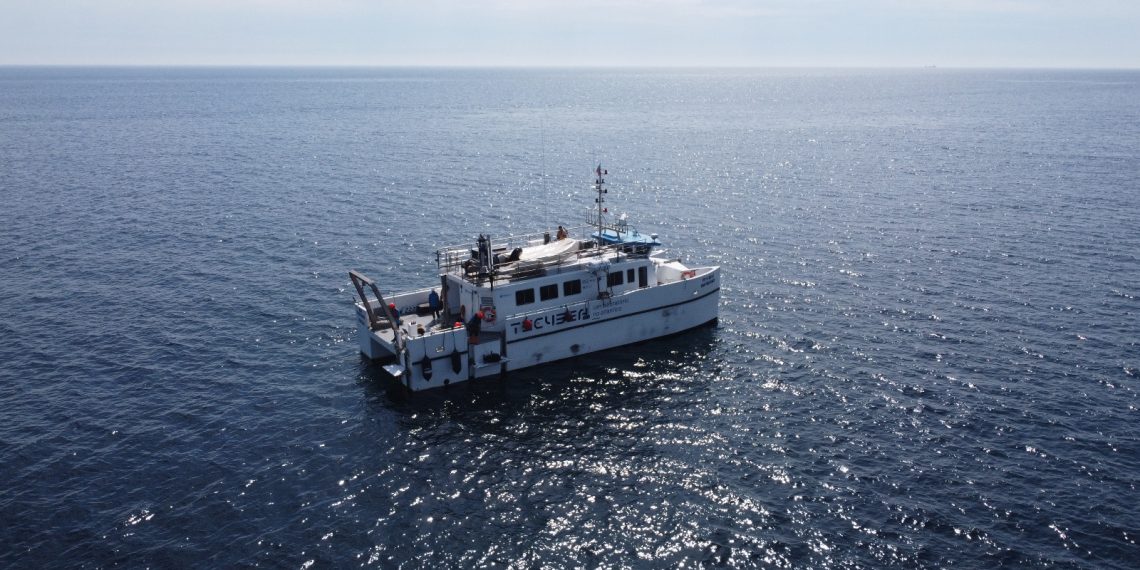The main goal of the project is the development of a reliable and transparent system for the continuous assessment of the environmental impact of deep-sea exploration. With €16M funding – with close to €12M provided by the EC’s Horizon Europe programme -, the project brings together 26 institutions from 10 countries, five of them Portuguese, including INESC TEC – also acting as the project’s leader.
The TRIDENT project will improve the capability to assess the environmental impact of underwater exploration activities.
Currently, there is no deep-sea mining activity taking place, and TRIDENT aims to advance the development of technology to evaluate, minimise and monitor any exploration action that may occur in the future.
Eduardo Silva, researcher at INESC TEC, professor at the Porto School of Engineering (ISEP), and head of the project, highlighted the project’s relevance considering the “development of technologies and new solutions to operate autonomously in remote areas, often influenced by extreme conditions, in order to provide real-time data crucial to monitoring actions”.
Moreover, TRIDENT is a strategic and ground-breaking project in terms analysing and assessing the environmental impact of deep-sea exploration, thus advancing the knowledge of the geological, biological and environmental processes associated with the exploration of raw materials.
In addition, it focuses on the development of an innovative dynamic infrastructure for real-time positioning, navigation, communication and awareness of mining and monitoring systems; the design of an innovative, high-tech mobile laboratory that can be easily transported to real operating environments; and the development of a holistic governance framework for the sustainable exploitation of Europe’s ocean resources.
TRIDENT received a funding of €16M – with close to €12M granted through the EC’s Horizon Europe programme -, and brings together partners from complementary areas with technical, scientific, administrative, and legal expertise, with a vast experience in research and innovation activities at national and international level in raw materials in the underwater environment, sea observation, technological developments for underwater exploration and environmental impact assessment.
In addition to INESC TEC, the project includes other four Portuguese entities: IPMA – Portuguese Institute for Sea and Atmosphere; ARDITI – Regional Agency for the Development of Research Technology and Innovation; EMEPC – Mission-Structure for the Extension of the Continental Shelf, and the Fórum Oceano – – Association of Maritime Economy.
The TRIDENT project will kick-off in January 2023, with a duration of five years.




 News, current topics, curiosities and so much more about INESC TEC and its community!
News, current topics, curiosities and so much more about INESC TEC and its community!